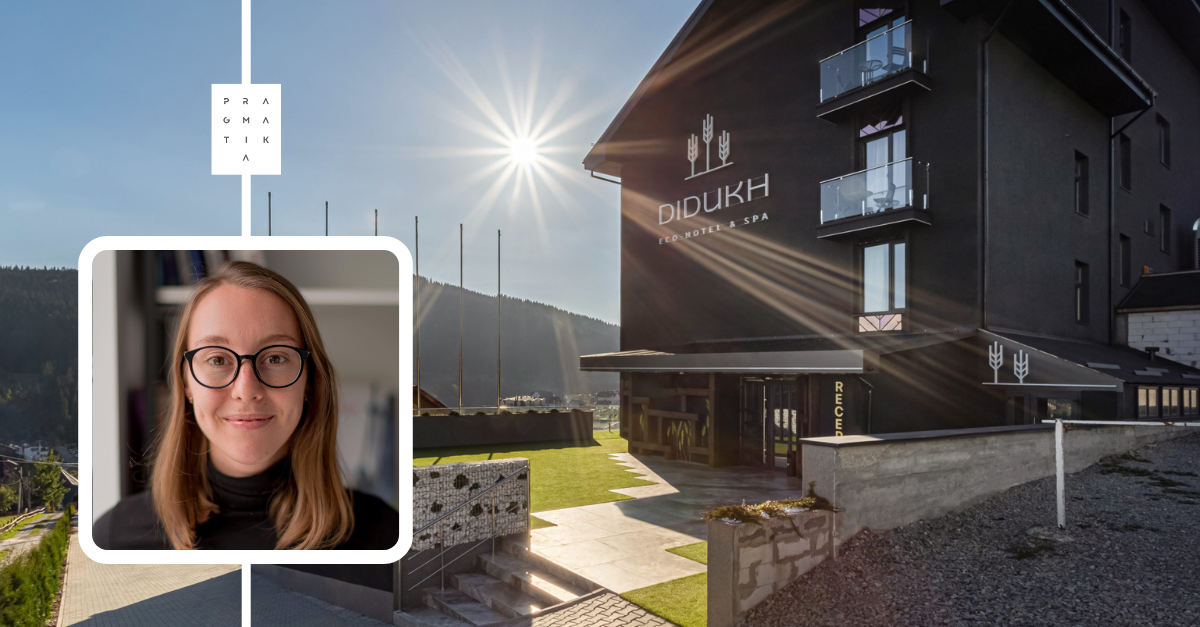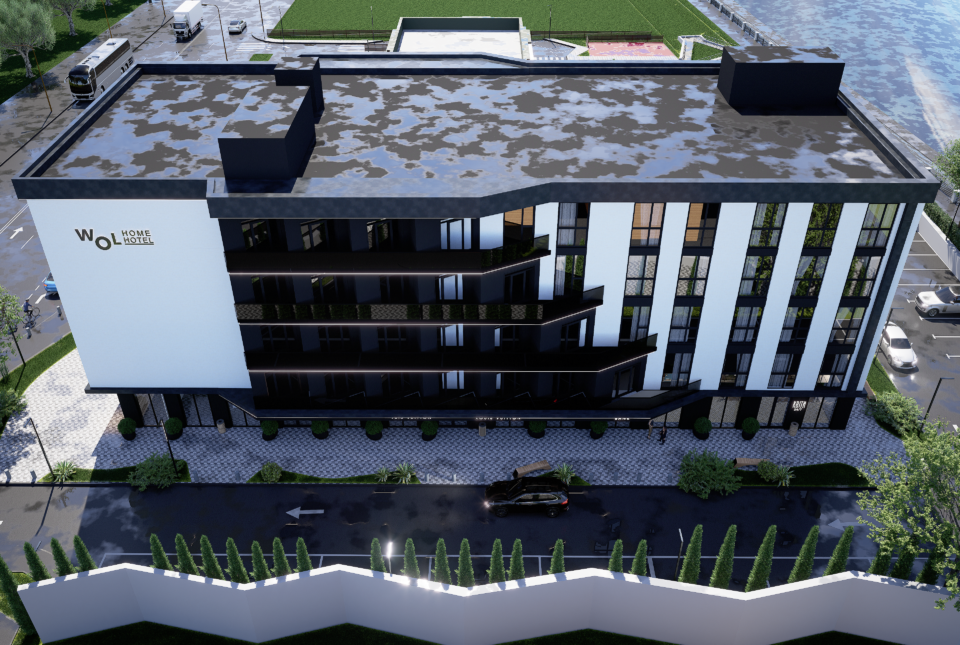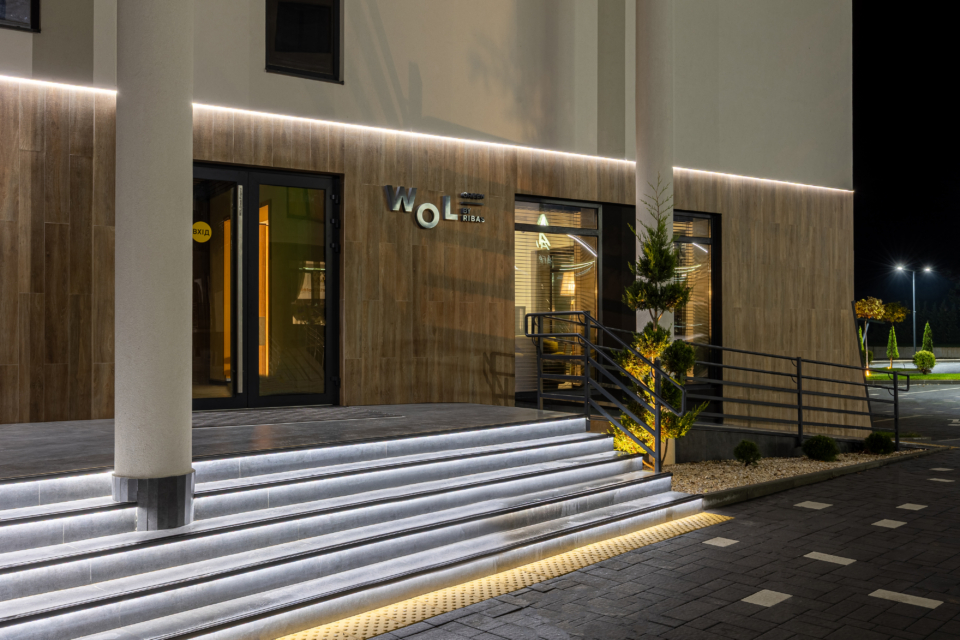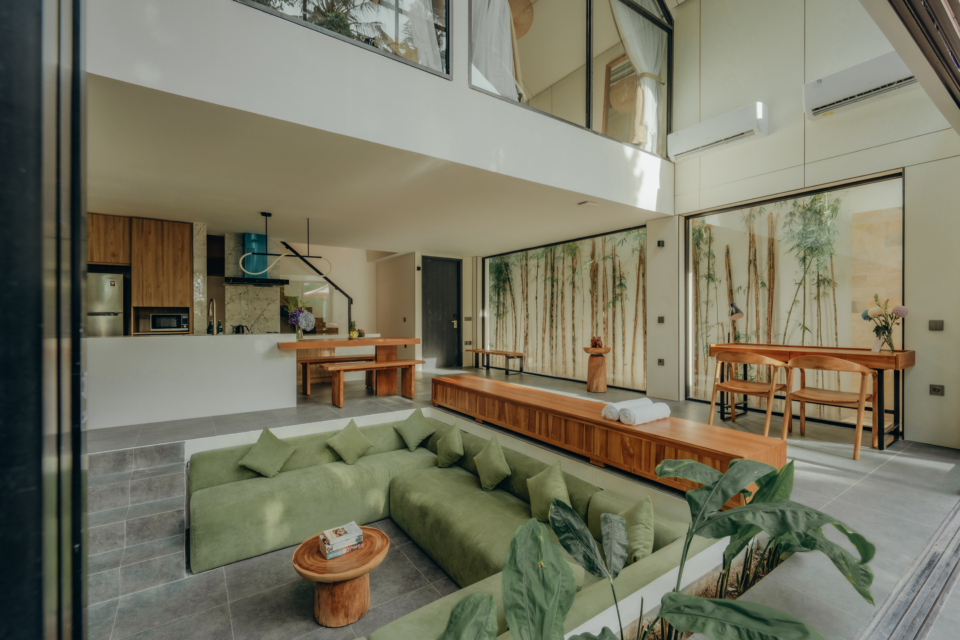Betting on the environment: “green” hotel design

The article was published on PRAGMATIKA.MEDIA.
Tetyana Morozova, leading architect at Ribas Hotels Group, talks about the peculiarities of “green architecture” and the main trends in its implementation in the hotel construction industry.
Hotel sustainability is developing in two key areas: reducing environmental impact and improving human health. And the trend towards the implementation of such projects in Ukraine is actively gaining momentum.
In the context of a full-scale war, the emergence of such facilities is especially important, as the country`s environment has deteriorated significantly, and this is one of the ways to improve it. According to the State Environmental Inspectorate, more than 280,000 square meters of Ukrainian soil have been contaminated with hazardous substances since February 24, 2022. In addition, more than 59,000 hectares of forests and other plantations have been scorched by missiles and shells.
The essence of ecological design
The concept of eco-friendly design is the use of environmentally friendly materials in the process of creating a project. For example, avoiding the use of oriented strand board, which can emit harmful substances, especially when a person is in a room with this material. And if you use wood chipboards, be sure to edge them properly to avoid harmful emissions that can affect the health of guests.
Examples of approaches that make a hotel eco-friendly include:
- Recycled materials. Another aspect of ecological design is the use of objects, materials, or products made from recycled materials. This helps to reduce the environmental footprint during the construction and implementation of the project.
- Local materials. At this stage, it is also important to choose local materials, as their transportation from remote areas has a significant environmental footprint. Recycling of construction waste also has a significant impact on the environment.
- Energy efficiency. In addition, energy efficiency should be taken into account when designing and engineering a building. The use of light colors for walls promotes better light penetration, which reduces energy consumption and affects lighting and heating. Installing energy-efficient windows and technical solutions, such as insulation and temperature control systems, increases the efficiency of the building and reduces energy consumption during its operation.
- Heating system. Today, one of the main factors affecting the environmental sustainability of hotels is the heating system. Many hotels use traditional heating methods, including firewood, which is harmful to the environment. For example, this method is used in many accommodation facilities in Bukovel. To reduce their environmental impact, hotels can also implement innovative heating methods, such as using heat pumps and switching to more environmentally friendly energy sources. Switching to electricity-based heating or using heat pumps is a step towards improving energy efficiency and reducing CO2 emissions.
- Saving energy costs. Ecological design also includes measures to reduce energy consumption and optimize the heat supply of premises, taking into account technological innovations and technical solutions. As part of this, it is important to address the issue of water supply. Ecological water purification systems should be used. It is also necessary to effectively store and heat water. Using solar panels to heat it can increase the energy efficiency of the building.
When designing our hotels, we always pay attention to sustainability, looking at ways to optimize energy consumption. This includes using heat pumps, choosing energy-efficient windows, and designing facades with thermal insulation in mind.
Read the rest of the story on PRAGMATIKA.MEDIA.
Subscribe to our blog so you don`t miss the latest articles on hospitality!
















